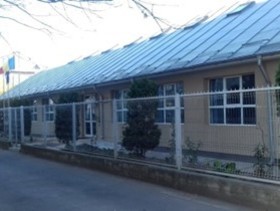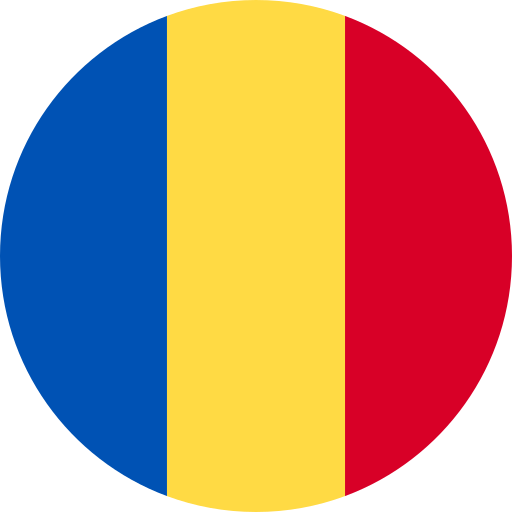School Trusts
Ireland

The Le Chéile Schools Trust comprises 53 Secondary schools from fifteen Religious Congregations including the Sisters of Charity of St. Paul Apostle.
The main object of the Le Chéile Trust is the development of a vision of Catholic education and overseeing its implementation in the schools.
The Le Chéile vision is based on gospel values and has at its centre a philosophy of education based on the unique dignity of the human person created in the image and likeness of God. It also encourages the preservation of key aspects of the charism/heritage of each Congregation.
While Le Chéile assumes the responsibilities of trustees, the Congregation retains ownership of the property and continues to maintain a presence in the school and on the Board of Management for as long as possible.

The Le Chéile Crest The design imagery is inspired by patterns from the Book of Kells. St. Brigid’s Cross symbolises our Celtic Catholic roots and traditions. The Interlocking Keys symbolise that education opens up new knowledge and possibilities. Le Chéile means togetherness and is symbolised by the different pathways into a central maze where there is searching, challenges and new directions.
South Africa
Gauteng Catholic Schools’ Trust, South Africa.
As Sisters of St. Paul, education has always ben an important ministry for us. This is clearly stated in the words of our foundress, Genevieve Dupuis – “Do your best for the children” and we have aimed to do this for the past 175 years, and almost 70 years in South Africa.
This call is what inspired us to assist in establishing a collaborative Trust for Catholic schools in South Africa, where we have both a Primary School and a Secondary School in Rustenburg, North West Province.
After a period of time when research, discussions with the schools themselves and prayer took place, the Catholic Schools’ Trust became a reality. Four Religious Congregations, including the Sisters of St. Paul, committed to setting up the Trust to oversee the governance and business of their schools in the Pretoria, Johannesburg and Rustenburg region of the country. The name Gauteng (which means place of gold – i.e. Johannesburg) was added to distinguish from another Trust with a similar name in Cape Town. Our Trust was registered with the Master of the High Court in Pretoria in January 2014. Trustees were appointed, including representatives from each of the founding Religious Congregations. The Trustees are responsible to the Owners for ensuring the Schools continue to carry out the original mission of their founders, with their own charism, traditions and heritage.
There are eleven schools owned by the four Congregations in the Trust, Primary, Secondary and one Special school for the Deaf. Links with the Sisters are maintained and remain very important. The Trust links are by means of representation on the Governing bodies, regular visits by the Trust Administrative Officer and biennial gatherings of schools, to enable them to identify as Trust Schools, share ideas and build collaboration amongst themselves.
May God continue to guide and bless those to whom we entrust our children and school communities as we move into an unknown future. St. Paul and Genevieve pray for us.
England
Update on Education in our Schools in Romania.
EDUCATION IN ROMANIA
The system of education in Romania is very interesting. Back in 1995 / 1996 when people in Campulung were thinking of opening a school, they realised that the only way to have a Christian school was to form an Association and then they could open a private school. They asked the Congregation of Sisters of Saint Paul for help in this regard. Now we are working in three educational establishments, in Campulung, Onesti and Tomesti. Each of these establishments has their own Association: in Campulung – asociatia “Inima Deschisa” (Open Heart); in Onesti – asociatia “Cu Inima Deschisa” – (With Open Heart) and in Tomesti – asociatia - “Inimi de Mama” – (a mothers heart). These associations (trustees) are responsible for the buildings and they also appoint the director using the national procedure as a guide. The Sisters in each area are members of these Associations.
All schools in Romania, including private schools, must have a Council of Administration, who are responsible of the standard of education. The size of the school determines the number of members, seven, eleven or thirteen, representing the teaching staff, parents, local council and the majority are from the association. The director is its representative and is responsible for all that happens in the day to day running of the school. Generally the “Infant” department (3-5/6 year olds) operates in a separate building. The “Primary and Secondary” (6/7 – 14/15 year olds, classes preparatory to 8) is the next department and “High School” ( 15/16 – 18/19 year olds, classes 9 to 12) the final stage. There is a national curriculum that is compulsory in all schools and the teachers must choose the textbooks from two or three recommended by the minister of education. Religion is optional and children and parents can choose 1 or 2 optional subjects. There is a national evaluation for children in classes two, four, six and eight. The results of the evaluation in class 8 determines which High School the children attend. After a very strenuous evaluation, private schools are granted “Accreditation” status and then an external evaluation every five years. Without these a school cannot function as a recognised educational establishment.

in Campulung – asociatia “Inima Deschisa” (Open Heart);

in Onesti – asociatia “Cu Inima Deschisa” – (With Open Heart)

and in Tomesti – asociatia – “Inimi de Mama” – (a mothers heart)

